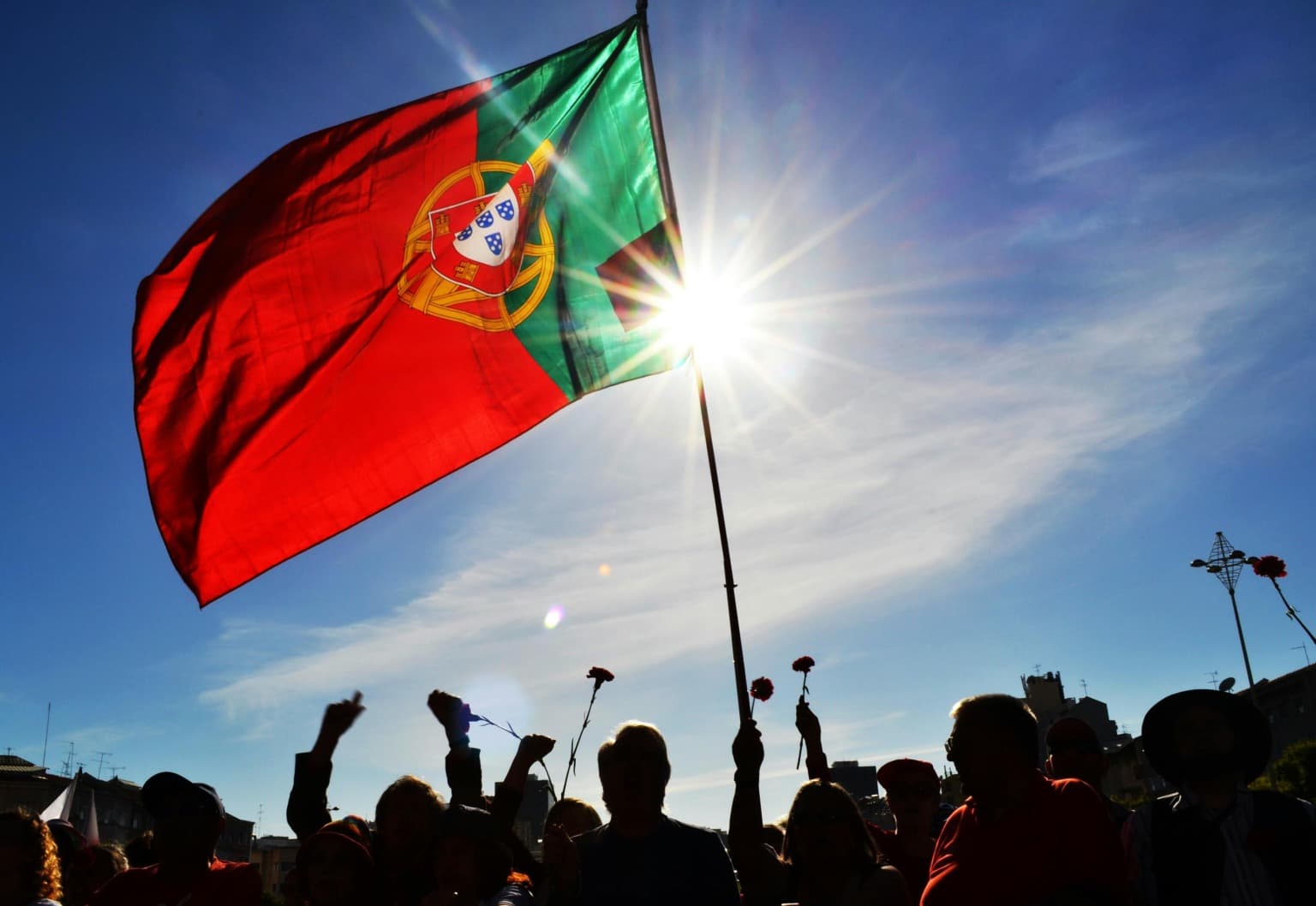Portugal’s Carnation Revolution: 50 Years of Freedom
April 19, 2024
The Carnation Revolution, also known as the Portuguese Revolution of 1974, marked a pivotal moment in Portugal’s history, signaling the end of the authoritarian Estado Novo regime and the dawn of a new era of democracy. On April 25th, 1974, the country witnessed a peaceful military coup led by the Armed Forces Movement (MFA), initiating profound social, political, and cultural changes. This text commemorates the 50th anniversary of this historic event and outlines the celebrations organized by the City Council.

Celebrating 50 years of freedom: Portuguese flag waving alongside people holding up carnations in honor of the Carnation Revolution
On April 25th, 1974, the Portuguese Revolution celebrated the beginning of a new era of democracy in Portugal, which is considered one of the most important moments in our history. The military coup led by the Armed Forces Movement (known as Movimento das Forças Armadas, or MFA) put an end to the authoritarian Estado Novo regime, paving the way for the resolution of one of the biggest problems the country was facing: the infamous colonial war, as well as for the democratization and development of the country. It was at dawn that the military took over the studios of the Portuguese Radio Club and, broadcasting to the entire nation, declared their desire for the country to become a democracy once again. One of the ways they showed solidarity with the people was by broadcasting songs that the regime didn’t like, such as José Afonso’s song, “Grândola, Vila Morena.”
This day will be remembered for the uprooting of injustices and blatant social inequalities, for the construction of a government that proclaimed freedom and democracy, as well as for the social and political emancipation of workers and the population in general. As this is the 50th anniversary of April 25th, Porto’s City Council will celebrate with several concerts, a video-mapping show, activities for all families, fireworks, and a Freedom Parade.
This year, festivities will take place the day before, at 10 pm on April 24th, with a concert by Bezegol on the Avenida dos Aliados. With a career spanning almost 12 years and four albums out, this musician from Porto is known for exploring and combining sounds as diverse as reggae, funk, hip-hop, and even fado. Just before midnight, and before the fireworks, the Choir of the Faculty of Arts and Humanities of the University of Oporto will perform the song “Grândola, Vila Morena” by Zeca Afonso to mark the start of this day known as Freedom Day.
On April 25th, the program starts at 10 am in Praça D. João I, with a special morning dedicated to the little ones, with several traditional games and workshops linked to revolution and freedom. In the afternoon, at 2 pm, the Porto Military Museum hosts a tribute to the anti-fascist resisters, a ceremony that precedes the traditional Freedom Parade, which starts at the beginning of Rua do Heroísmo, next to Ex-PIDE, and continues to the Avenida dos Aliados. Finally, two more musical moments mark the end of the day on the Aliados stage: Caruma’s performance at 3 pm, and Pedro Mestre’s “Campaniça do Despique” concert an hour later, which includes a Cante Alentejano choir.
As we face a new political and social reality in Portugal, we deeply believe that this celebration is a profound moment of learning, reflection, and engagement. This celebration is open to all people, of all ages and genders.
Written by the Cooltour Oporto team